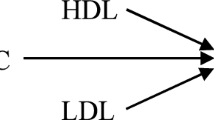Abstract
Over the past few decades, Jaegwon Kim has argued that non-reductive physicalism is an inherently unstable position. In his view, the most serious problem is that non-reductive physicalism leads to type epiphenomenalism—the causal inefficacy of mental properties. Kim suggests that we can salvage mental causation by endorsing functional reduction. Given the fact that Kim’s goal in formulating functional reduction is to provide a robust account of mental causation it would be surprising if his position implies eliminativism about mental properties or leads to a view that is similar to one of the versions of non-reductive physicalism that he criticizes. We will show that depending on how certain key claims are interpreted, there are reasons for thinking functional reduction has these implications, in which case either Kim fails to provide a robust account of mental causation or there is reason to suspect that some of his criticisms of non-reductive physicalism are misguided.
Similar content being viewed by others
Notes
Kim defines this principle as follows: “No single event can have more than one sufficient cause occurring at any given time—unless it is a genuine case of causal overdetermination” (Kim 2005, p. 42).
Kim assumes that closure is acceptable to advocates of non-reductive physicalism. We will not challenge this assumption. He defines closure as follows: “If a physical event has a cause that occurs a t, it has a physical cause that occurs at t” (Kim 2005, p. 43).
In his early work on events, Kim leaves open the possibility that properties of events can be re-described (Kim 1993b, p. 43).
This research was supported by the Social Sciences and Humanities Research Council of Canada.
References
Antony, L. (1989). Anomalous monism and the problem of explanatory force. Philosophical Review, 98(2), 153–187.
Block, N. (2003). Do causal powers drain away? Philosophy and Phenomenological Research, 67(1), 133–150.
David, M. (1997). Kim’s functionalism. Noûs, 31, 133–148.
Davidson, D. (1970). Mental events. In L. Foster & J. Swanson (Eds.), Experience and theory. Amherst: University of Massachusetts Press. Reprinted in Davidson, Essays on Actions and Events (pp. 207–224). Oxford, Clarendon Press.
Davidson, D. (1993). Thinking causes. In J. Heil & A. Mele (Eds.), Mental causation (pp. 3–17). Oxford: Clarendon Press.
Gibb, S. (2006). Why Davidson is not a property epiphenomenalist. International Journal of Philosophical Studies, 14(3), 407–422.
Gozzano, S. (2003). Second-order properties: Why Kim’s reduction does not work. Logic and Philosophy of Science, 1(1), 1–15.
Hess, P. (1981). Actions, reasons, and humean causes. Analysis, 41(March), 77–81.
Honderich, T. (1982). The argument for anomalous monism. Analysis, 42(January), 59–64.
Horgan, T. (1989). Mental quausation. Philosophical Perspectives, 3, 47–76.
Horgan, T. (1997). Kim on mental causation and causal exclusion. Nous-Supplement: Philosophical Perspectives, 11, 165–184.
Jackson, F. (2002). From reduction to type-type identity. Philosophy and Phenomenological Research, 65(3), 644–647.
Jacob, P. (2002). Some problems for reductive physicalism. Philosophy and Phenomenological Research, 65(3), 648–654.
Khalidi, M. (2005). Against functional reductionism in cognitive science. International Studies in the Philosophy of Science, 19(3), 319–333.
Kim, J. (1984). Epiphenomenal and supervenient causation. Midwest Studies in Philosophy, 9, 257–270.
Kim, J. (1990). Explanatory exclusion and the problem of mental causation. In E. Villanueva (Ed.), Information, semantics, and epistemology (pp. 36–56). Oxford: Blackwell.
Kim, J. (1992). Multiple realization and the metaphysics of reduction. Philosophy and Phenomenological Research, 52(1), 1–26.
Kim, J. (1993a). Can supervenience and ‘non-strict laws’ save anomalous monism? In J. Heil & A. Mele (Eds.), Mental causation (pp. 19–26). Oxford: Clarendon.
Kim, J (1993b). Events as Property Exemplification. In J. Kim, Supervenience and Mind (pp. 33–52). Cambridge: Cambridge University Press.
Kim, J. (1998). Mind in a physical world. Cambridge: MIT Press/Cambridge University Press.
Kim, J. (1999). Making sense of emergence. Philosophical Studies, 95(1–2), 3–36.
Kim, J. (2002). Responses. Philosophy and Phenomenological Research, 65(3), 671–680.
Kim, J. (2005). Physicalism, or something near enough. New Jersey: Princeton University Press.
Kim, J. (2006). Philosophy of mind. Cambridge: Westview Press.
Kim, J. (2008). Reduction and reductive explanation. In J. Hohwy & J. Kallestrup (Eds.), Being reduced (pp. 93–114). Oxford: Oxford University Press.
Kim, J. (2009). Mental causation. In B. McLaughlin, A. Beckermann, & S. Walter (Eds.), The Oxford handbook of philosophy of mind (pp. 29–52). Oxford: Oxford University Press.
Marras, A. (2003). Methodological and ontological aspects of the mental causation problem. In S. Walter & H. D. Heckmann (Eds.), Physicalism and mental causation (pp. 243–264). Exeter: Imprint Academic.
McLaughlin, B. (1993). On Davidson’s response to the charge of epiphenomenalism. In J. Heil & A. Mele (Eds.), Mental causation (pp. 27–40). Oxford: Clarendon Press.
Pineda, D. (2002). The causal exclusion puzzle. European Journal of Philosophy, 10(1), 26–42.
Robb, D. (2008). Review of Harbecke. Notre Dame Philosophical Reviews, 9.
Rueger, A. (2004). Reduction, autonomy, and causal exclusion among physical properties. Synthese, 139(1), 1–21.
Sabates, M. (2002). Review of mind in a physical world. Philosophy and Phenomenological Research, 65(3), 663–670.
Sosa, E. (1984). Mind–body interaction and supervenient causation. Midwest Studies in Philosophy, 9(1), 271–281.
Stoutland, F. (1985). Davidson on intentional behavior. In E. Lepore & B. P. McLaughlin (Eds.), Actions and events: Perspectives on the philosophy of Donald Davidson (pp. 44–59). New York: Basil Blackwell.
Walter, S. (2008). The supervenience argument, overdetermination, and causal drainage. Philosophical Psychology, 21(5), 673–696.
Author information
Authors and Affiliations
Corresponding author
Rights and permissions
About this article
Cite this article
Moore, D., Campbell, N. Functional Reduction and Mental Causation. Acta Anal 25, 435–446 (2010). https://doi.org/10.1007/s12136-010-0107-8
Received:
Accepted:
Published:
Issue Date:
DOI: https://doi.org/10.1007/s12136-010-0107-8




